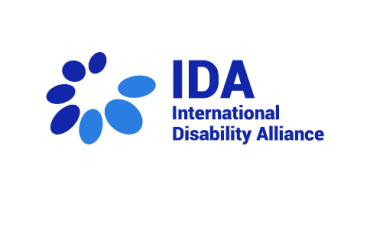Welcome to the weekly newsletter on the 30th Session of the Committee on the Rights of Persons with Disabilities
Week 1, 4th to 8th March
The 30th Session of the Convention on the Rights of Persons with Disabilities Committee meeting will take place from Monday, March 4th to Friday, March 22nd at the UN headquarters in Geneva, Switzerland. You can follow all the sessions on the UN WebTV platform here.
The first week of the 30th session of the CRPD Committee
Last week was the first week of the 30th session of the Committee on the Rights of Persons with Disabilities. Following its formal opening on Monday 4th March, the CRPD Committee dedicated the public meetings of the week to three main activities:
- The review of Kazakhstan
- The review of Zambia
- The review of Bahrain
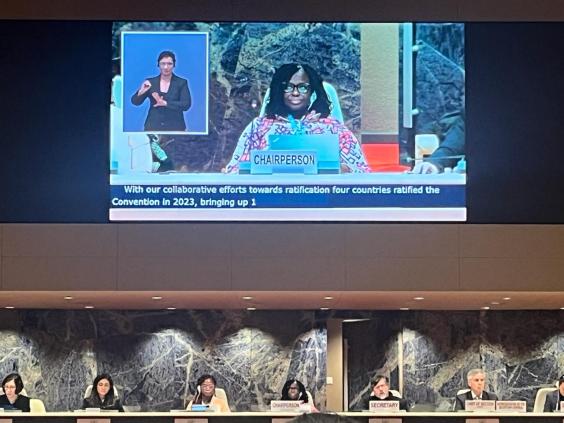
On March 4th, the Committee on the Rights of Persons with Disabilities opened its 30th session. Following the session's opening on Monday 4th morning, the CRPD Committee held constructive dialogues with three States Parties to the CRPD: Kazakhstan, Zambia, and Bahrain.
During the opening of the session, the First Vice-President of the International Disability Alliance Mr Cato Lie acknowledged and commended the outstanding efforts of the CRPD Committee and its Secretariat:
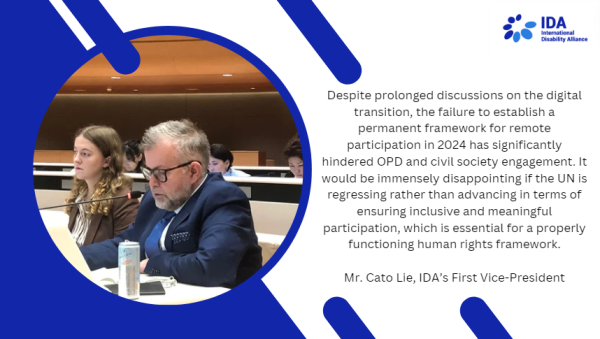
He also called the Committee to provide further guidance on "how to ensure disability-inclusive development and realize the SDGs for all persons with disabilities; how to achieve the highest attainable standard of health without discrimination based on disability, and what the full implications of applying the CRPD and the social model of disability to ‘mental health’ might be on existing laws, policies, and frameworks, having particular regard to the rights of persons with psychosocial disabilities."
Read the full statement here.
Reviews of Kazakhstan, Zambia and Bahrain 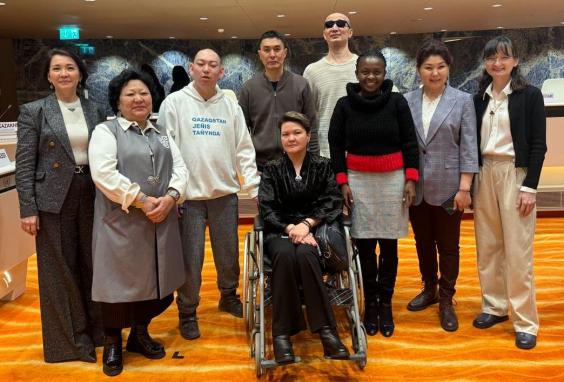
On children with disabilities, the Committee raised concerns about the continued institutionalization in psychiatric institutions and forced medicalization. To this end, the Committee pressed on Kazakhstan to outline measures taken to deinstitutionalize children with disabilities and support provided to parents to ensure that they do not send their children to residential institutions. Restriction of legal capacity can have a chilling effect on the enjoyment and exercise of other rights. To this end, the Committee noted that Kazakhstan’s outdated laws, such as Article 26 of the Civil Code and 323 of the Civil Procedural Code, continue to deprive persons with disabilities the right to marry, open bank accounts, access to bank loans, vote, act as witness, defendants, own property and control over their treatment, and asked government to outline measures taken to repeal these provisions.
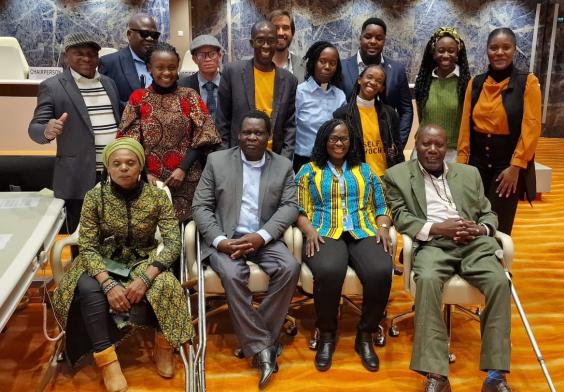
On Wednesday 6th (afternoon) and Thursday 7th (morning), the CRPD Committee held its constructive dialogue with Zambia. This was the first dialogue between the Committee and the delegation of Zambia, presenting an opportunity to reflect on strides made and areas for improvement. Some positive steps were noted in legislative reforms including the adoption of the Persons with Disabilities Act (2012) and the Mental Health Act (2019). On the other side of the coin, the Committee expressed concerns about inconsistencies in standards specifically in the definition of persons with disabilities, deprivation of legal capacity, and introduction of guardianship under Article 4(2) and Article 4(3) of the Mental Health Act.
The Committee further noted that groups that face multiple and intersectional discrimination including women with disabilities, persons with albinism, and those with intellectual disabilities continued to be excluded. Key areas of concern included the lack of disability-inclusive gender policies and laws, the lack of a comprehensive framework to protect from attacks and killings of persons with albinism including delays in signing the Africa Union Plan of Action to End Attacks and Other Human Rights Violations Targeting Person with Disabilities in Africa (2021–2031) and the lack of reasonable accommodation for learners with intellectual disabilities. With regard to the institutional framework, a major concern was raised on the effectiveness of the Zambia Agency for Persons with Disabilities, with the Committee explicitly calling upon the government to provide resources and ensure coordination among all focal points for implementation of the CRPD.
Among the different issues discussed, the CRPD Committee criticized the insufficient protection against all forms of disability-based discrimination. By nature, constitutional provisions on equality and non-discrimination remain vague and derived regulations were not sufficiently strong. In addition, according to the State report itself, it is discrimination in the area of employment the one tackled by the Act No. 74 (2006) on the welfare, habilitation and employment of persons with disabilities. Another serious concern raised by the Committee relates to persons with disabilities who would acquire their impairments due to acts of torture by States officials, inquiring on whether there were any services of rehabilitation and reparation for them.
Click for the videos of the public meetings related to Kazakhstan, Zambia and Bahrain
For Kazakhstan, the International Disability Alliance supported three persons to travel to Geneva. The rest of the OPDs representatives were either self-funded or supported by other sources. For Zambia, the International Disability Alliance collaborated with the International Commission of Jurists (ICJ) and the Norwegian Association for the Disabled, both of which also contributed to facilitate the attendance of OPDs representatives from Zambia. The numerous OPDs delegation included colleagues from the Zambia Federation of Disability Organisations (ZAFOD) and its members and Disability Rights Watch.
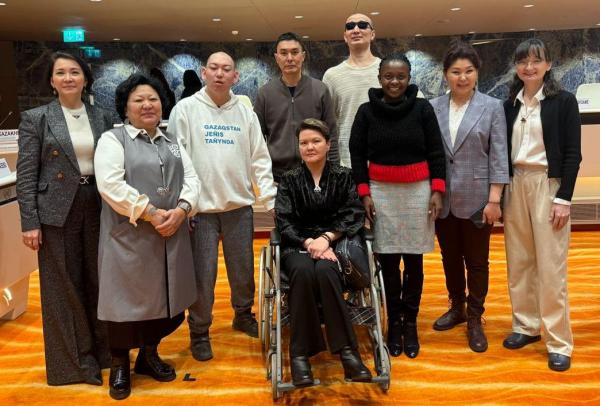
KAZAKHSTAN
“People with disabilities in Kazakhstan require systemic change, not just surface adjustments. It's heartening to see that the Committee has taken a firm stance, compelling the government of Kazakhstan to take genuine action towards an inclusive society for all". ”
Members of the Civil Society Coalition of Kazakhstan
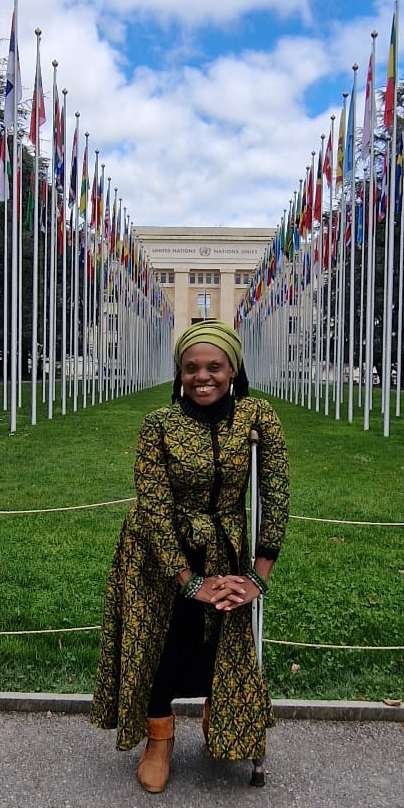
ZAMBIA
“It was indeed a great honor to be part of the Zambian time that participated in the preparatory, reporting, and review of the CRPD process. The engagement was meaningful with the members of the CRPD Committee about the myriad of challenges facing persons with disabilities in Zambia. Participating in this session enabled the Zambia team to experience first-hand the synergy between contributions made by Zambian OPDs and the insightful questions posed by the Committee to the State delegation under review. This was incredibly gratifying, although slightly disappointed by the responses from the State Party. However, we remain hopeful and inspired that our continued advocacy efforts, as well as recommendations from the CRPD Committee, will lead to continued progress toward the realization of the rights of persons with disabilities in Zambia."
Musola Catherine Kaseketi
President Zambia Federation of Organisations of the Disabled (ZAFOD)
What’s next this second week of the CRPD Committee review?
During this second week, beginning today, Monday, 11th March, the CRPD Committee will conduct private briefings with organizations of persons with disabilities and four constructive dialogues with States Parties.
The public meetings for constructive dialogues are scheduled as follows:
Sweden
Monday, March 11th, 3 PM to 6 PM CET
Tuesday, March 12th, 10 AM to 1 PM CET
Azerbaijan
Tuesday, March 12th, 3 PM to 6 PM CET
Wednesday, March 13th, 10 AM to 1 PM CET
Costa Rica
Thursday, March 14th, 10 AM to 1 PM CET
Thursday, March 14th, 3 PM to 6 PM CET
Nicaragua
_______________________________________________________________________
Friday, March 15th, 10 AM to 1 PM CET
Friday, March 15th, 3 PM to 6 PM CET
All these are public sessions and will be webcast by UN Web TV where you can follow the sessions live.
Follow us live on Twitter for the newest updates from the sessions @IDA_CRPD_Forum!
For more information on the session, including reports by States and organizations of persons with disabilities, visit the CRPD Committee-specific website.
